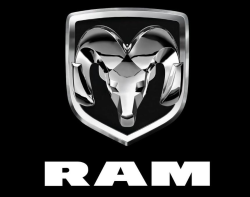
—
A Dodge Ram diesel emissions lawsuit is back from the dead seven years after it was first dismissed.
The class action lawsuit, originally filed in 2016, alleges Fiat Chrysler trucks emit nitrogen oxide emissions 14 times above legal limits.
These Dodge Ram trucks are equipped with Cummins 6.7-liter turbo engines that are allegedly illegal.
(Dodge made “Ram” its own brand in 2012)
- 2007-2010 Dodge Ram 2500
- 2011 Dodge Ram 2500 (non-SCR systems)
- 2012 Ram 2500 (non-SCR systems)
- 2007-2010 Dodge Ram 3500
- 2011 Dodge Ram 3500 (non-SCR systems)
- 2012 Ram 3500 (non-SCR systems)
The diesel emissions class action lawsuit accuses Chrysler and Cummins of violating the Racketeer Influenced and Corrupt Organizations (RICO) Act, committing fraudulent concealment, false advertising and violating consumer protection laws.
According to the lawsuit, hundreds of thousands of Dodge Ram diesel trucks are illegal and certainly not “clean diesel” vehicles. The plaintiffs claim they proved this through testing, but Chrysler says the plaintiffs tested just one 2012 Ram truck, but this allegedly means all the trucks in the country are defective.
Chrysler and Cummins had long argued the lawsuit was filed only because of the Volkswagen emissions scandal. Following VW’s disaster, lawyers filed multiple emissions class action lawsuits against multiple automakers.
Before the Dodge Ram diesel emissions class action was dismissed in 2018, Cummins told the judge the plaintiffs cited multiple studies performed in other countries of other vehicles equipped with other engines. But none of those vehicles were equipped with the 6.7-liter diesel engines installed in the Ram trucks.
The lawsuit was dismissed in 2018 after the judge said none of the studies ever tested Chrysler vehicles, much less the Ram diesel trucks in the lawsuit. Much of the dismissal was based on federal laws (Clean Air Act) that override state law claims.
The judge found the federal “Clean Air Act implicitly preempted plaintiffs’ residual state law claims.” However, the judge dismissed the claims without prejudice which allowed the plaintiffs to modify and refile their class action.
As for the remaining claims, the judge said the “plaintiffs must demonstrate in some measure that defendants failed to follow the EPA-prescribed testing procedures or their obligation to report truthful information to the EPA.”
The judge dismissed the entire case which caused the plaintiffs to appeal to the U.S. Court of Appeals for the Sixth Circuit.
In a 17-page opinion, the Sixth Circuit ruled that not all the state law claims are preempted by the federal Clean Air Act, the opposite finding of the district court judge.
The appeals court focused on FCA’s advertising of the alleged benefits of the diesel emissions technology compared to gasoline engines and the supposed decreased harm to the environment.
“But plaintiffs’ remaining theories—that FCA and Cummins misled and defrauded consumers because the trucks emitted NOx at a rate higher than (1) emitted by comparable gasoline trucks, (2) expected by a reasonable consumer, or (3) as advertised by defendants—at least plausibly allege a baseline consumer expectation independent of compliance with federal emissions standards.”
According to the Sixth Circuit, the plaintiffs have done enough to allege their “state law claims are not based on a violation of [federal] emissions standards.”
The Dodge Ram diesel emissions lawsuit will be sent to the lower district court for further proceedings.
The Dodge Ram diesel emissions lawsuit was filed in the U.S. District Court for the Eastern District of Michigan: James Bledsoe, et al., v. FCA US LLC, and Cummins Inc.
The plaintiffs are represented by Carella Byrne Cecchi Olstein Brody & Agnello PC, Hagens Berman Sobol Shapiro LLP, Hilliard Munoz Gonzales L.L.P, The Miller Law Firm PC, and Seeger Weiss LLP.

